
May 27
1703 St. Petersburg:
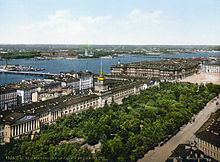
After winning access to the Baltic Sea through his victories in the Great Northern War, Czar Peter I founds the city of St. Petersburg as the new Russian capital. [For further details, Click here]
1819 Birth: Julia Ward Howe: a poet who co-published the anti-slavery newspaper The Commonwealth with her husband, Samuel Gridley Howe. In 1861 she wrote the words to The Battle Hymn of the Republic, which became the recognized theme song of the Union during the Civil War. After the war Howe continued writing, became active in the woman's suffrage movement and advocated world peace. In 1908 she became the first woman elected to the American Academy of Arts and Letters.
1879 Birth: Hans Lammers: prominent Nazi and head of the Reich Chancellery:

Born in . . . Upper Silesia, the son of a veterinarian, Lammers completed law school in Breslau and Heidelberg, and was a judge in Beuthen (modern Bytom) in 1912 . . . . Lammers received the Iron Cross, First and Second Class, during the First World War, then resumed his career as a lawyer and joined the German National People's Party (DNVP), [a right wing national-conservative party in Germany during the time of the Weimar Republic], reaching the position of Undersecretary of the Interior by 1922.
In 1932, Lammers joined the Nazi Party and achieved rapid promotion, appointed a police department head in 1933, and soon afterwards a State Secretary and chief of the Reich Chancellery. In this position, he became the center of communications and chief legal adviser for all government departments. From 1937, he was a member of Hitler's cabinet as a Reich Minister without Portfolio, and from November 30, 1939 a member of the Council of Ministers for the Defense of the Reich . . . . Beginning in January 1943, Lammers served as President of the cabinet when Hitler was absent from their meetings. Along with Martin Bormann, he increasingly controlled access to Hitler.After the war, the Nuremberg tribunal sentenced Lammers to 20 years in prison. The sentence was later reduced to 10 years, and he was pardoned and released in 1952. He died on January 4, 1962 in Dusseldorf.
1905 Russo-Japanese War: The Battle of Tsushima Strait:

During the Russo-Japanese War, the Russian Baltic Fleet is nearly destroyed at the Battle of Tsushima Strait. The decisive defeat, in which only 10 of 45 Russian warships escaped to safety, convinced Russian leaders that further resistance against Japan's imperial designs for East Asia was hopeless.
On February 8, 1904, following the Russian rejection of a Japanese plan to divide Manchuria and Korea into spheres of influence, Japan launched a surprise naval attack against Port Arthur, a Russian naval base in China. It was the first major battle of the 20th century, and the Russian fleet was decimated. During the subsequent war, Japan won a series of decisive victories over the Russians, who underestimated the military potential of its non-Western opponent. In January 1905, the strategic naval base of Port Arthur fell to Japanese naval and ground forces under Admiral Heihachiro Togo, and in March Russian troops were defeated at Shenyang, China, by Japanese Field Marshal Iwao Oyama.
Russian Czar Nicholas II hoped that the Russian Baltic fleet under Admiral Zinovy Rozhestvensky would be able to challenge Admiral Togo's supremacy at sea, but during the two-day Battle of Tsushima Strait, beginning on May 27, more than 30 Russian ships were sunk or captured by the superior Japanese warships. In August, the stunning string of Japanese victories convinced Russia to accept the peace treaty mediated by U.S. President Theodore Roosevelt at Portsmouth, New Hampshire. (Roosevelt was later awarded the Nobel Peace Prize for this achievement.) In the Treaty of Portsmouth, Russia recognized Japan as the dominant power in Korea and gave up Port Arthur, the southern half of Sakhalin Island, and the Liaotung Peninsula to Japan.
Japan emerged from the conflict as the first modern non-Western world power and set its sights on greater imperial expansion. However, for Russia, its military's disastrous performance in the war was one of the immediate causes of the Russian Revolution of 1905. (History.com) [See: Countdown to Infamy: Timeline to Pearl Harbor.]
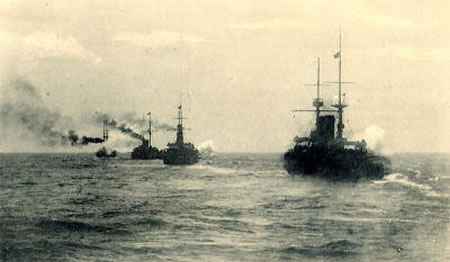
While naval experts were impressed by Admiral Togo's fleet when it destroyed the Russian ships at the decisive battle of Tsushima, it was the general bearing of Japanese society which struck other observers. The surprise strike at Port Arthur (a habit begun in the 1894 China conflict, and revived in 1941) was applauded in the West, as was the enthusiasm of Japanese nationalist opinion for an outright victory, whatever the cost.
More remarkable still seemed the performance of Japanese officers and men in the battles around Port Arthur and Mukden, where tens of thousands of soldiers were lost as they charged across minefields, over barbed wire, and through a hail of machine-gun fire before conquering the Russian trenches. The samurai spirit, it seemed, could secure battlefield victories with the bayonet in the age of mass industrialized warfare. If, as all the contemporary military experts concluded, moral and discipline were still vital prerequisites of national power, Japan was rich in those resources.
Even then, however, Japan was not a full-fledged Great Power. Japan had been fortunate to have fought an even more backward China and a czarist Russia which was militarily top-heavy and disadvantaged by the immense distance between St. Petersburg and the Far East. Furthermore, the Anglo-Japanese Alliance of 1902 had allowed it to fight on its home ground without interference from third powers. Its navy had relied upon British-built battleships; its army upon Krupp guns. Most important of all, it had found the immense cost of the war impossible to finance from its own resources and yet had been able to rely upon loans floated in the United States and Britain.
As it turned out, Japan was close to bankruptcy by the end of 1905, when the peace negotiations with Russia got under way. That may not have been obvious to the Tokyo public, which reacted furiously to the relatively light terms with which the Russians escaped the final settlement. Nevertheless, with victory confirmed, Japan's armed forces glorified and admired, its economy able to recover, and its status as a Great Power (albeit a regional one) admitted by all, Japan had come of age. No one could do anything significant in the Far East without considering its response; but whether it could expand further without provoking reaction from the more established Great Powers was not at all clear.
1915 World War I: Various:

List Regiment: Gefreiter Adolf Hitler's 16 Reserve Infantry Regiment continues to occupy a position at Fromelles (pictured above in a drawing by Hitler), which is on a level field with water channels, willow trees and willow stalks. In the distance towards the enemy lines lies an insignificant wood with barbed wire entanglements. Under the direction of their defense-minded commander, Lieutenant General Gustav Scanzoni von Lichtenfels, the regiment works ceaselessly day and night to further fortify their position at Fromelles while fighting off repeated assaults by the enemy. [For further details, Click here.]
Birth: Herman Wouk: U.S. novelist:
His experience serving aboard a destroyer-minesweeper in World War II provided material for The Caine Mutiny (1951, Pulitzer Prize; film, 1954), a drama of naval tradition that presented the unforgettable character Captain Queeg. The Winds of War (1971) and War and Remembrance (1978) together represent a two-volume novel of the war.
1916 World War I: List Regiment: Gefreiter Adolf Hitler endures trench warfare in Flanders (Artois) with 3 Company, 16 Reserve Infantry Regiment. [For further details, Click here.]
1917 World War I: Various:
List Regiment: Gefreiter Adolf Hitler's 16th RIR redeploy east of Douai for a period of rest which will extend until June 24. [For further details, Click here.]
Tenth and Eleventh Battles of the Isonzo:
Thomas Nelson Page, US Ambassador to Italy: By May 27 the Italians had reached the third line of Austrian defences and crossed the Ternovo. The offensive was costly, for the Italians were forced to carry by assault against Austria's best troops positions which, naturally of tremendous strength, had been fortified by Austria's highest experts till they were deemed the impregnable bulwarks of the Dual Kingdom. But if the Italian losses were tremendous, they also exacted a heavy toll from the defenders. So successful was this May offensive that Austria felt compelled to draw important reinforcements from her eastern front to defend these gateways to Trieste. Cadorna was now complete master of the initiative, and he prepared for his next step.
1918 World War I: Various:
Third Battle of the Aisne:
In the early morning hours of May 27, 1918, the German army begins the Third Battle of the Aisne with an attack on Allied positions at the Chemin des Dames ridge, in the Aisne River region of France. (History.com)
List Regiment: Gefreiter Adolf Hitler's 16th RIR is behind the lines for a period of rest that will last until May 30. [For further details, Click here.]
1939 Countdown to War: State Secretary German Foreign Office to German Ambassador in Moscow:
Dear Count Schulenburg,
We answered your letter of the 22nd in our telegram of yesterday, which will probably surprise you less than Herr Hilger, who was at hand at the birth of a very different sort of instruction. I feel that I still owe you a word of explanation. We are of the opinion here that the English-Russian combination certainly will not be easy to prevent. However, there may even today be a rather wide field of negotiation into which we may be able to inject ourselves with an impeding and disturbing effect by use of a more unmistakable sort of language. The possibility of success is considered here to be quite limited, so that one must weigh whether a very open statement in Moscow, instead of being beneficial, might not rather be harmful and perhaps produce a peal of Tartar laughter.
In weighing these points of view, it had also to be considered that one link in the whole chain, namely, a gradual conciliation between Moscow and Tokyo, is regarded by the Japanese as distinctly problematical. Rome also was very hesitant, so that eventually the disadvantages of the proposed far-reaching step were regarded as the determining factor. In short, we will remain within the instructions which we have sent to you, and we now want to see how deeply Moscow on the one hand and Paris-London on the other are willing to pledge themselves to each other.
Your reports and judgments of the situation are naturally most welcome here at all times. Our inquiries about the return here of the Soviet Russian Ambassador, Merekalov, are only of significance in relation to the future moves at the Kremlin.
Heartiest greetings and best wishes.
Heil Hitler !
Always yours faithfully,
Weizsacker.
1940 World War II: Atrocity near Dunkirk:
On this day in 1940, units from Germany's SS Death's Head division battle British troops just 50 miles from the port at Dunkirk, in northern France, as Britain's Expeditionary Force continues to fight to evacuate France.
After holding off an SS company until their ammo was spent, 99 Royal Norfolk Regiment soldiers retreated to a farmhouse in the village of Paradis, just 50 miles from the Dunkirk port. Ships waited there to carry home the British Expeditionary Force, which had been fighting alongside the French in its defensive war against the German invaders. Agreeing to surrender, the trapped regiment started to file out of the farmhouse, waving a white flag tied to a bayonet. They were met by German machine-gun fire.
They tried again and the British regiment was ordered by an English-speaking German officer to an open field where they were searched and divested of everything from gas masks to cigarettes. They were then marched into a pit where machine guns had been placed in fixed positions. The German order came: "Fire!" Those Brits who survived the machine-gun fire were either stabbed to death with bayonets or shot dead with pistols.
Of the 99 members of the regiment, only two survived, both privates: Albert Pooley and William O'Callaghan. They lay among the dead until dark, then, in the middle of a rainstorm, they crawled to a farmhouse, where their wounds were tended. With nowhere else to go, they surrendered again to the Germans, who made them POWs. Pooley's leg was so badly wounded he was repatriated to England in April 1943 in exchange for some wounded German soldiers. Upon his return to Britain, his story was not believed. Only when O'Callaghan returned home and verified the story was a formal investigation made. Finally, after the war, a British military tribunal in Hamburg found the German officer who gave the "Fire" order, Captain Fritz Knochlein, guilty of a war crime. He was hanged.
1941 World War II: Various:
From The Cruise of the Bismarck by Francis McMurtrie:
There is a sort of crackling roar to port—the Rodney has opened up with her 16-inch guns, and an instant later, the King George V lets fly with her 14-inch . . . Rodney . . . just sat there like a great slab of rock . . . and suddenly belched a full salvo. I actually saw these projectiles flying through the air for some seconds after they left the guns, like little diminishing footballs curving up and into the sky . . . . There was only one great splash . . . . The others had bored their way through the Krupp armor-belt like cheese; and pray God I may never know what they did as they exploded inside the hull . . . . Bismarck . . . turned away, then back, writhing, it seemed, under the most merciless hail of high-explosive armor-piercing shells that any ship has, I suppose, ever faced.
Admiral Lutjens— the commander of the Bismarck Squadron—sends out a final radio message: "Send U-boat to save war diary." Note: No U-boat will be able to do so. (Baldwin, Brown)
From The Chase and Sinking of the Battleship Bismarck by Ludovic Kennedy:And as he left, he [Admiral Sir John C. Tovey] made a general signal to ships in company: 'Any ship with torpedoes to close Bismarck and torpedo her.' Only one ship, Dorsetshire, still had torpedoes, and when Tovey's signal reached her, Captain Martin had already anticipated it. Closing to a mile and a half on Bismarck's starboard beam, she fired two torpedoes, both of which hit. She then went round the other side, at just over a mile fired another, which also hit. Far off now in King George V, half-way to the horizon, Tovey saw, through his glasses, the great ship slowly heel over to port until her funnel was level with the water, go on turning until she was completely upside down. The stern dipped below the surface of the water, then the main keel: the great flared bows were the last to go. [For much more detail, Click here That is an order!]
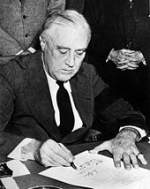
US President FDR reacts to the German navy's sinking of the merchant vessel Robin Moor by declaring a state of unlimited national emergency.
We Choose Human Freedom
I am speaking tonight from the White House in the presence of the Governing Board of the Pan American Union, the Canadian Minister, and their families. The members of this Board are the Ambassadors and Ministers of the American Republics in Washington. It is appropriate that I do this for now, as never before, the unity of the American Republics is of supreme importance to each and every one of us and to the cause of freedom throughout the world. Our future independence is bound up with the future independence of all of our sister Republics.
The pressing problems that confront us are military and naval problems. We cannot afford to approach them from the point of view of wishful thinkers or sentimentalists. What we face is cold, hard fact.
The first and fundamental fact is that what started as a European war has developed, as the Nazis always intended it should develop, into a world war for world domination.
Adolf Hitler never considered the domination of Europe as an end in itself. European conquest was but a step toward ultimate goals in all the other continents. It is unmistakably apparent to all of us that, unless the advance of Hitlerism is forcibly checked now, the Western Hemisphere will be within range of the Nazi weapons of destruction.
1942 World War II: Various:
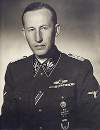
Operation Anthropoid:
Reinhardt Heydrich, one of Hitler's favorites and now Reich Protector of Bohemia and Moravia, is seriously wounded in Prague by Czech nationals trained as British agents in England. Hitler quickly declares a state of siege in the protectorate, offers a reward of one million marks for the capture of the assassins, and vows to slaughter 10,000 Czechs. (THP)
[For further details, Click here]
Holocaust: Dubno (Ukraine): Five thousand Jews, judged to be nonproductive for the German war effort, are taken outside the town and killed. (THP)
Resistance: All 152 members of the student group which had distributed anti-Nazi posters in Berlin are shot. (THP)
1943 World War II: U.S. Olympian Louie Zamperini's plane goes down in the Pacific:
"On this day in 1943, a B-24 carrying U.S. airman and former Olympic runner Louis "Louie" Zamperini crashes into the Pacific Ocean. After surviving the crash, Zamperini floated on a raft in shark-infested waters for more than a month before being picked up by the Japanese and spending the next two years in a series of brutal prison camps. His story of survival was featured in the 2010 best-selling book Unbroken by Laura Hillenbrand." [For further information, click here.]
1944 World War II: FDR to Stalin:
With reference to my message of May 23 proposing for consideration a message to be issued by me with the purpose of influencing the German people, I am informed that the suggestion is not approved by the Prime Minister of Great Britain and his Cabinet. Because the proposed statement is not of essential importance and in view of a definite and positive objection by the British Government, I propose to do nothing in the way of a statement of that nature at the present time.
1945 War in the Pacific: Units of the US l Corps takes Santa Fe on Luzon. Heavy fighting continues on Mindanao.
1946 Nuremberg Tribunal: Baldur von Schirach continues his testimony:
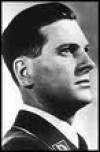
Schirach: Very often probably—and I once said this here—I supported the policy of the Fuehrer out of erroneous loyalty to him. I know that it was not right.
Dodd: That is what I want to know. You were, weren't you, acting under an impulse of loyalty to the Fuehrer. Now you recognize it to be erroneous, and that is all I am inquiring for, and if you tell the Tribunal that, I shall be perfectly satisfied.
Schirach: Yes, I am prepared to admit that. [For Schirach's full testimony, Click here.]
From The Anatomy of the Nuremberg Trials by Telford Taylor:
On cross-examination, Tom Dodd spent nearly an entire afternoon trying to breathe some life into the charge that Schirach had conspired to initiate aggressive war. He was able to show from songs, books, and other sources that the HJ was much more militant, anti-Jew, and anti-church than Schirach had described it . . . . But with regard to Count One of the Indictment, all this was wasted effort. There was no evidence involving Schirach in plans or intentions of starting or waging aggressive war . . . even if the HJ had engaged in extensive military training under military supervision, such factors would have provided no basis for Schirach's conviction on Count One. Schirach's admissions had left him on much shakier ground on Count Four, especially in the light of his public support for the expulsion of Jews from Vienna to Poland. Dodd had evidence which further strengthened the prosecution's case.
Schirach's defense calls Hartmann Lauterbacher to the witness stand. [For Lauterbacher's full testimony, Click here.]
Schirach's defense calls Gustav Dietrich Hoepken to the witness stand: [For Hoepken's full testimony, Click here.]1994 Alexander Solzhenitsyn: The Nobel Prize-winning author returns to Russia after spending two decades in exile.
1999 Crimes against humanity: A U.N. tribunal indicts Yugoslav president Slobodan Milosevic in respect of Kosovo.
Edited by Levi Bookin (Copy editor)
levi.bookin@gmail.com



Click to join 3rdReichStudies

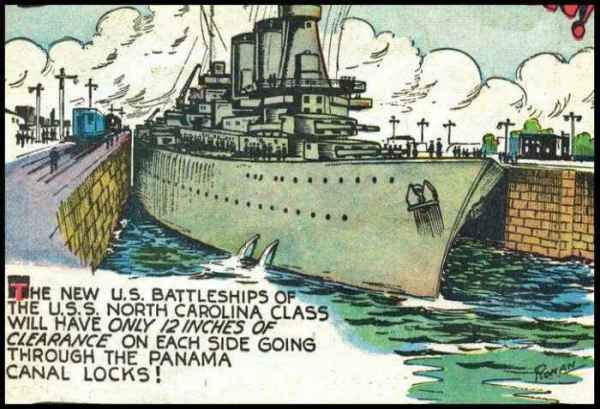
Disclaimer: This site includes diverse and controversial materials—such as excerpts from the writings of racists and anti-Semites—so that its readers can learn the nature and extent of hate and anti-Semitic discourse. It is our sincere belief that only the informed citizen can prevail over the ignorance of Racialist "thought." Far from approving these writings, this site condemns racism in all of its forms and manifestations.
Fair Use Notice: This site may contain copyrighted material the use of which has not always been specifically authorized by the copyright owner. We are making such material available in our efforts to advance understanding of historical, political, human rights, economic, democracy, scientific, environmental, and social justice issues, etc. We believe this constitutes a "fair use" of any such copyrighted material as provided for in section 107 of the US Copyright Law. In accordance with Title 17 U.S.C. Section 107, the material on this site is distributed without profit to those who have expressed a prior interest in receiving the included information for research and educational purposes. If you wish to use copyrighted material from this site for purposes of your own that go beyond 'fair use', you must obtain permission from the copyright owner.
Please Note: The list-owner and moderators of 3rdReichStudies are not responsible for, and do not necessarily approve of, the random ads placed on our pages by our web server. They are, unfortunately, the price one pays for a 'free' website.